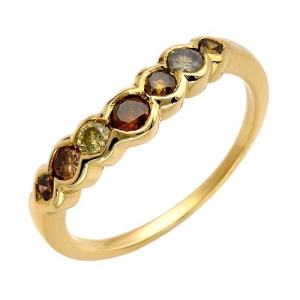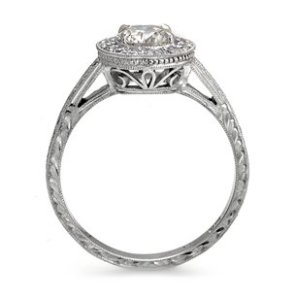What Is A Diamond?
A Diamond is a rare precious gem and one of the oldest minerals, having been formed deep within the bowels of the earth over billions of years! Born from pure carbon, the diamond is clear crystalline and the hardest naturally occurring substance. The diamond’s high brilliance, rarity, and hardness has captivated and enticed the imagination of human civilization ever since the 4th century BC when the ancient Hindus first prized the diamond as a rare gem calling it vajra or “thunderbolt.” Because of the natural properties of a diamond, people around the world have come to associate this beautiful stone with timelessness, strength and beauty.
Value of a Diamond | Color, Clarity, Cut, Carat
Temperature, pressure, and the earth’s shifting layers can all radically change the formation of a diamond, making it impossible for any two diamonds to be alike. Diamonds can be individually distinguished by the 4 C’s, otherwise known as Color, Clarity Cut, and Carat. These terms are an essential part of the makeup of each individual diamond.
Diamonds of the highest value are pure colorless brilliant gems with transparent color, high clarity, excellent cut, and a large carat weight; these diamonds are very popular for use in engagement rings and bridal jewelry.
Diamond Color
When we think of diamonds, what immediately comes to mind are white diamonds, but diamonds can come in any color of the rainbow! Mother Nature provides a variety of naturally colored diamonds known as fancy diamonds. Naturally colored or “fancy” diamonds come in champagne, chocolate, and yellow tones as well as lavender, pink, red, blue or green, to name a few. Some hues, like rare pink or blue diamonds, are particularly difficult to find.
Diamond Color Grade Chart
Most colorless (white, transparent) diamonds have a touch of brown or yellow tint in them, and it is the amount of tint they contain which determines their value. The less tint the higher the value! Diamonds are graded on a scale from D to Z, a system developed by the Gemological Institute of America. “D” rates as the highest grade of color, signifying an absolutely transparent, colorless, very rare gem.
Many diamonds look glamorous no matter what their grade is, since a diamond’s value is primarily based on the skill of the jeweler who cuts it. Ultimately, the diamond’s look is affected by the choice of metal for the setting as well as the shape and the cut of the diamond.
Diamond Color Grade Chart
D: An Exceptional, Most Rare Diamond
E, F: Colorless, Very Rare Diamonds
G, H, I, J: Near Colorless Diamonds of High Value
K, L, M: A touch of brown or yellow tint
N to Z: Diamonds with heavier tints
Artificially Colored Diamonds | Fancies
With the development of technology and the rarity of naturally colored diamonds, it became necessary to artificially add color to diamonds by treating them chemically. Diamonds which have been artificially colored are called enhanced diamonds.
Diamond Shape
Diamonds come in many different shapes and cuts! At Jewelry by Liza Shtromberg we have a large variety of diamonds with several different shapes including our sparkling collection of vintage diamonds! Select your dream diamond from our assortment of non-conflict diamonds which have been taken from high end estate jewelry. Our beautiful vintage diamonds are available in several different cuts and carat weight, and a wide selection of complimentary settings are available in platinum, yellow gold, white gold, and rose gold. Discover the perfect diamond for your loved one at Jewelry by Liza Shtromberg!
Here a just a few different shapes of diamonds in beautiful settings designed by Liza Shtromberg:
A classic Round Brilliant shape
A Square or Rectangle Princess Shape
An elongated Marquise shape
Cushion Shape with rounded corners
Teardrop Pear Shape
And don’t forget the Heart!












Leave a Reply